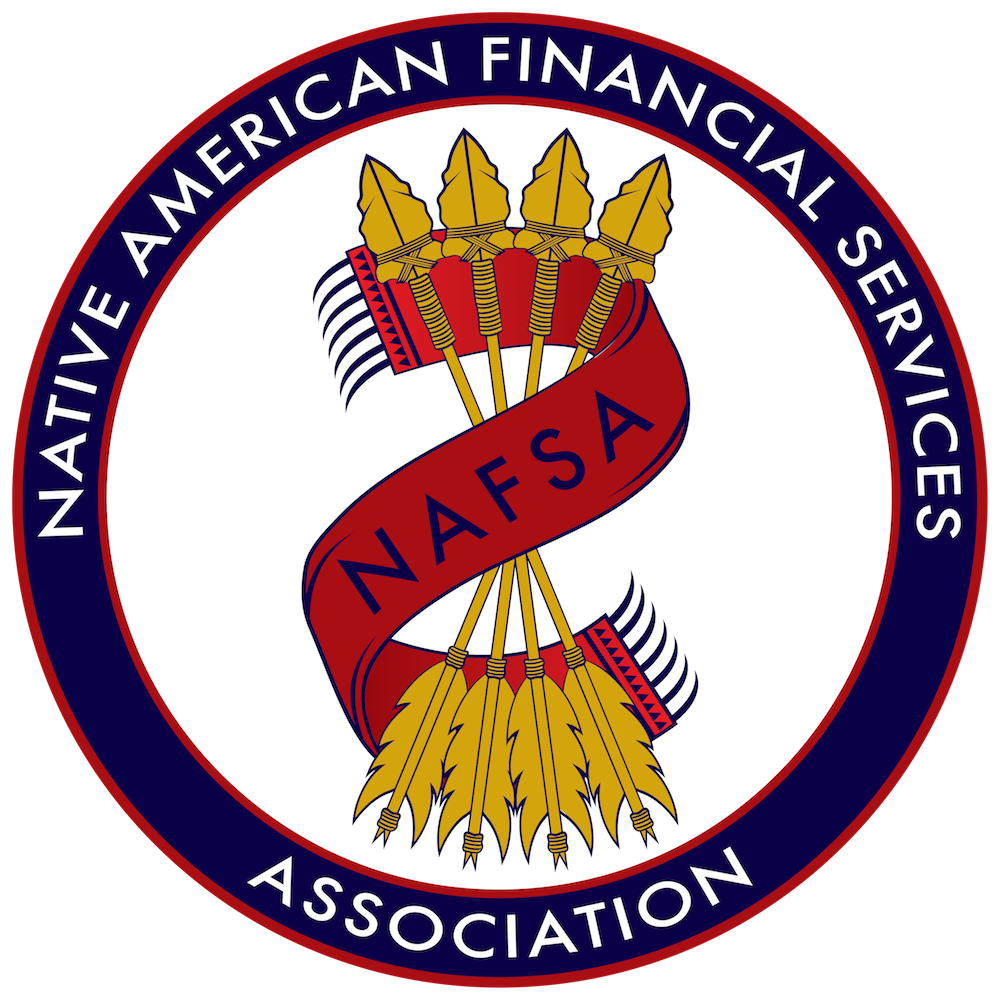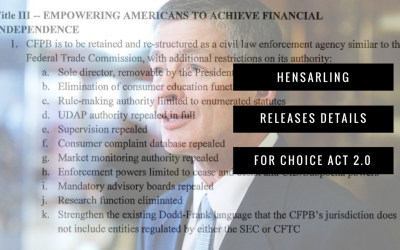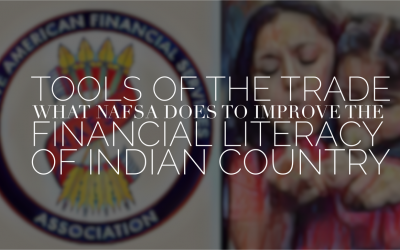The Latest Financial News
FinTech Finds a Home in Britain (and Indian Country)
Deloitte, an international auditing, consulting and financial advisory firm, recently named London, England as a hub of the FinTech industry. Three of the top five hubs in the study, New York, Silicon Valley and Chicago, operate in the United States. The goal of the...
Hensarling Releases Details for CHOICE Act 2.0
Following up on a memo distributed in February, Rep. Jeb Hensarling (R- TX), Chairman of the House Financial Services Committee, released more information on a proposed bill to renovate the Dodd-Frank Act, dubbed CHOICE Act 2.0. In particular, CHOICE Act 2.0 proposes...
Tools of the Trade: What NAFSA Does to Improve the Financial Literacy of Indian Country
Using data from its National Financial Capability Study, the FINRA Foundation recently teamed up with the First Nations Development Institute to issue a report on the financial capabilities of Native Americans entitled “Race and Financial Capability in America:...
Why NAFSA?
There are more than 570 federally-recognized tribes in the United States, many of whom are spread across in diverse areas. This has left a need for other tribal economic development opportunities to create sustainability and jobs on Native American reservations.
Tribal Financial Services:
![]() Create jobs & economic development on tribal lands
Create jobs & economic development on tribal lands
![]() Increase the financial independence of tribes
Increase the financial independence of tribes
![]() Deploy sovereignty & bolster tribal self-determination
Deploy sovereignty & bolster tribal self-determination

The Impact of Tribal Financial Services
Coming from a history of staggering unemployment rates, limited opportunities, and lack of access to fundamental resources, Native American tribes began online lending businesses to create real change for the future. Internet commerce has been a vehicle for supporting economic growth, tribal services, and tribal development. These are their stories.
Our Mission
To advocate for tribal sovereignty, promote responsible financial services, and provide better economic opportunity in Indian Country for the benefit of tribal communities.




